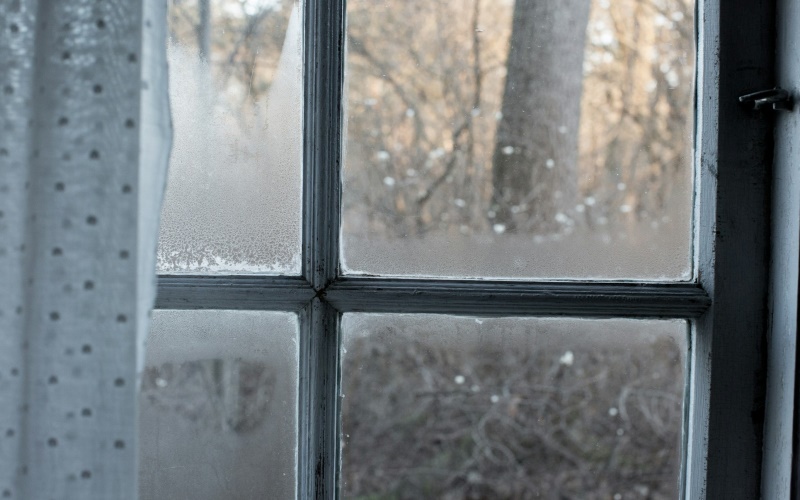In Grand Rapids, MI, residents are no strangers to the challenges posed by harsh weather conditions. From heavy snowfalls and ice storms in the winter to severe thunderstorms in the warmer months, the weather here demands that homes be fortified against the elements. Protecting your home from such diverse weather not only ensures the safety of its occupants but also preserves the structural integrity of the building, preventing potentially costly repairs. This article offers crucial tips for homeowners on how to effectively shield their residences from adverse weather, ensuring peace of mind year-round.
Inspect and Maintain Your Roof
The roof is your home’s first line of defense against harsh weather, making regular inspections and maintenance essential. At least twice a year, in the spring and fall, inspect your roof for missing, damaged, or worn shingles and check for leaks in the attic or ceilings. Early detection of minor problems can prevent them from escalating into more significant issues during bad weather. If you’re not comfortable performing the inspection yourself, consider hiring a professional to ensure your roof is in optimal condition.
Consider Durable Roofing Materials
To further enhance your home’s resilience against harsh weather, consider investing in durable roofing materials. Metal roofing, for instance, is excellent for withstanding heavy snow, hail, and severe storms. Contact local Grand Rapids metal roofing contractors who can provide insights into the benefits of metal roofs and help you determine if this option is suitable for your home. Metal roofs not only offer durability but also come in a variety of styles that can improve your home’s aesthetic appeal.
Clean and Secure Gutters
Functional gutters are crucial for directing rainwater away from your home’s foundation and preventing water damage. Ensure your gutters are free of debris such as leaves and twigs, which can cause clogs and overflow. Additionally, check that your gutters are securely attached to your house and that downspouts direct water at least three feet away from the foundation. Cleaning your gutters in the spring and late fall can help prevent ice dams in the winter and water overflow during heavy rains.
Seal Windows and Doors
Drafts and water leakage around windows and doors can lead to significant heat loss and moisture problems inside your home. To prevent this, check the seals around all windows and doors annually and replace any worn weather stripping or caulking. This helps in protecting your home from water damage and improves energy efficiency by reducing heating and cooling costs.
Trim Trees and Secure Landscaping
Strong winds can transform tree branches into projectiles that can damage your home. To minimize this risk, regularly trim overhanging branches near your home. Secure outdoor furniture and other items that could be blown away by strong winds or washed away by floodwaters. Consider landscaping designs that use native plants and natural slopes to further reduce soil erosion and surface runoff.
Install Storm Shutters
Installing storm shutters is an effective way to protect your windows from flying debris during severe storms. Storm shutters come in various styles, such as roll-down, accordion, or colonial, and can be made from materials like steel, aluminum, or plywood. Besides providing protection during bad weather, storm shutters can also enhance the security of your home and may reduce your home insurance premiums.
Reinforce the Garage Door
Garage doors are a common weak point during severe weather, especially in high winds which can cause them to buckle or blow in. Strengthening your garage door to withstand these forces is crucial. Consider installing a garage door bracing kit, which typically includes a system of braces and stronger tracks to hold the door firmly in place. Upgrading to a heavier-duty garage door can also provide additional resistance against wind and debris. Ensuring your garage door is robust not only protects the items stored inside but also prevents wind from entering and causing internal damage to your home.
Create an Emergency Kit
An emergency kit is essential for staying safe during and after severe weather events. Your kit should include items such as bottled water, non-perishable food, a battery-powered or hand-crank radio, flashlights, extra batteries, a first-aid kit, and essential medications. Store your emergency kit in a readily accessible location and check its contents every six months, replacing expired items as necessary. Preparing this kit ensures that you have the necessary supplies to support your household for at least 72 hours following a disaster.
Invest in a Generator
Power outages are a common consequence of harsh weather. Investing in a generator can keep your home functional during these outages. There are several types of generators available, ranging from small portable models to permanently installed home systems that automatically turn on when power is lost. Evaluate your energy needs based on essential appliances like refrigerators, heaters, or medical equipment, and choose a generator that meets these requirements. Remember to operate generators in well-ventilated areas to avoid carbon monoxide poisoning and adhere to all safety guidelines.
Monitor Weather Alerts
Staying informed is your first line of defense against impending severe weather. Sign up for local weather alerts and download a reliable weather app to receive real-time updates. Many of these systems provide early warnings about severe weather, allowing you ample time to prepare or evacuate if necessary. Regular monitoring of weather forecasts can help you anticipate and react promptly to changing weather conditions, potentially saving lives and reducing property damage.
Safeguard Your Home 10 Tips for Protecting Your Home from Harsh Weather
Protecting your home from harsh weather involves a combination of preparation, maintenance, and vigilance. By implementing the strategies outlined, you can dramatically increase your home’s resilience against severe weather. The time you invest today in protecting your home can prevent significant hardships and financial loss in the future. Equipped with these tips, homeowners can face the toughest of seasons knowing they have taken proactive steps to secure their homes and ensure the safety of their families.

